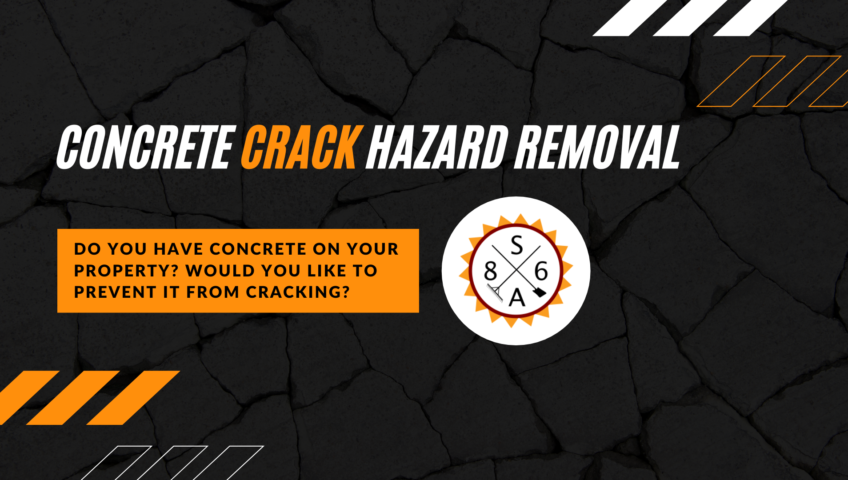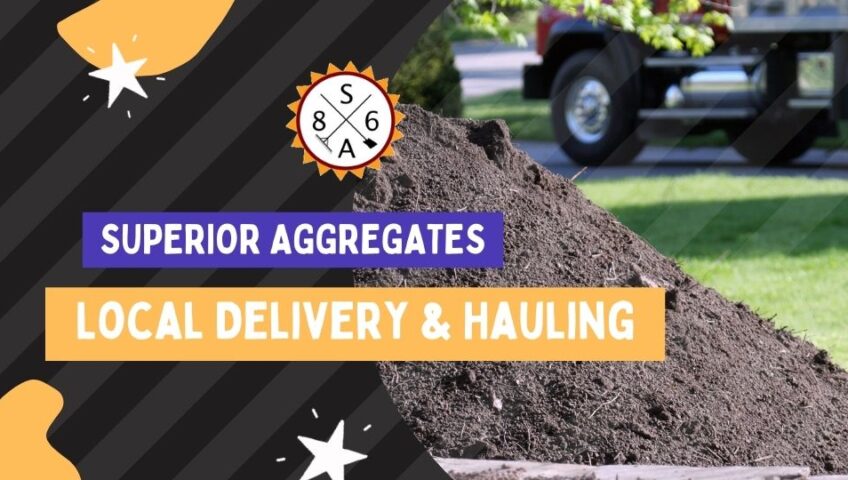
Concrete Crack Hazard Removal
Do you have concrete on your property? Would you like to prevent it from cracking? One of the most common complaints business owners have is that their concrete is starting to crack. They may think that the initial contract or may not have done a very good job; however, concrete is like everything else on your property. You need to take care of it if you would like it to last. How can you prevent concrete from cracking? What should you do if you notice that your concrete is starting to crack? There are several important points to consider.
Why Does Concrete Crack?
There are several reasons why concrete might be cracking. Some of the most common reasons include:
- There might be too much water in the concrete mixture. Concrete does not require a lot of water in order to achieve its maximum strength. Excess water can reduce the strength of the concrete, leading to shrinkage. As concrete begins to harden, it shrinks. This is because excess water is evaporating. Excess water leads to more shrinkage, literally pulling the slab apart.
- The concrete might be drying too quickly. If concrete is drying too quickly, it might not be cured properly. It is important to reach out to a professional contractor to make sure the concrete is not drying too fast.
- There might not be any control joints in the concrete. Control joints are put in place to help the concrete crack where it should. If there aren’t any control joints, the concrete might end up cracking.
These are just a few of the many reasons why concrete might crack.
How Can You Prevent Concrete from Cracking?
There are several ways to prevent concrete from cracking. Some of the top methods include:
- Install control joints. This will prevent the concrete from cracking in vulnerable places.
- Always cure the concrete properly. If the concrete does not cure properly, it may begin to crack.
- Check the water to cement ratio again. The water to cement might need to be reduced to prevent excess shrinkage.
In order to properly address this issue, you may need to reach out to a trained contractor.
What Should You Do if You Notice Concrete Cracks?
If you noticed that your concrete is beginning to crack, the first thing you should do is mark the concrete hazards. That way, people do not enter the area unknowingly, which can prevent serious injuries and accidents from taking place. Concrete crack hazards are dangerous and should be treated as such.
If you can do so safely, take a close look at the crack. Try to remove any debris that might be present. You may need to use a wire brush in order to appropriately clean the crack. You may also want to use a pressure washer if you know how to use one safely.
If you are familiar with concrete, you may be tempted to fill the crack yourself. Even though you might be able to temporarily patch it, you should rely on a trained professional for a permanent repair job.
Reach Out to Trained Professionals for Help with Concrete Cracks
Do everything you can to prevent concrete from cracking. If you work with an experienced professional, you should be able to get as much life as possible out of your concrete. If you notice cracks in your concrete, reach out to a trained professional for assistance. That way, you know the repair job is completed appropriately the first time around.
Do you have concrete on your property? Would you like to prevent it from cracking? One of the most common complaints business owners have is that their concrete is starting to crack. They may think that the initial contract or may not have done a very good job; however, concrete is like everything else on your property. You need to take care of it if you would like it to last. How can you prevent concrete from cracking? What should you do if you notice that your concrete is starting to crack? There are several important points to consider.
Why Does Concrete Crack?
There are several reasons why concrete might be cracking. Some of the most common reasons include:
- There might be too much water in the concrete mixture. Concrete does not require a lot of water in order to achieve its maximum strength. Excess water can reduce the strength of the concrete, leading to shrinkage. As concrete begins to harden, it shrinks. This is because excess water is evaporating. Excess water leads to more shrinkage, literally pulling the slab apart.
- The concrete might be drying too quickly. If concrete is drying too quickly, it might not be cured properly. It is important to reach out to a professional contractor to make sure the concrete is not drying too fast.
- There might not be any control joints in the concrete. Control joints are put in place to help the concrete crack where it should. If there aren’t any control joints, the concrete might end up cracking.
These are just a few of the many reasons why concrete might crack.
How Can You Prevent Concrete from Cracking?
There are several ways to prevent concrete from cracking. Some of the top methods include:
- Install control joints. This will prevent the concrete from cracking in vulnerable places.
- Always cure the concrete properly. If the concrete does not cure properly, it may begin to crack.
- Check the water to cement ratio again. The water to cement might need to be reduced to prevent excess shrinkage.
In order to properly address this issue, you may need to reach out to a trained contractor.
What Should You Do if You Notice Concrete Cracks?
If you noticed that your concrete is beginning to crack, the first thing you should do is mark the concrete hazards. That way, people do not enter the area unknowingly, which can prevent serious injuries and accidents from taking place. Concrete crack hazards are dangerous and should be treated as such.
If you can do so safely, take a close look at the crack. Try to remove any debris that might be present. You may need to use a wire brush in order to appropriately clean the crack. You may also want to use a pressure washer if you know how to use one safely.
If you are familiar with concrete, you may be tempted to fill the crack yourself. Even though you might be able to temporarily patch it, you should rely on a trained professional for a permanent repair job.
Reach Out to Trained Professionals for Help with Concrete Cracks
Do everything you can to prevent concrete from cracking. If you work with an experienced professional, you should be able to get as much life as possible out of your concrete. If you notice cracks in your concrete, reach out to a trained professional for assistance. That way, you know the repair job is completed appropriately the first time around.




